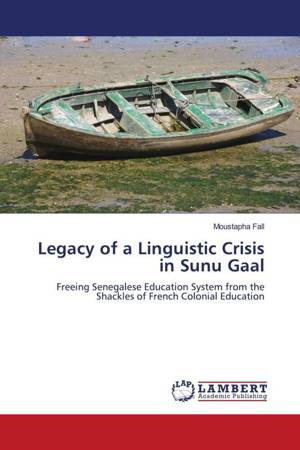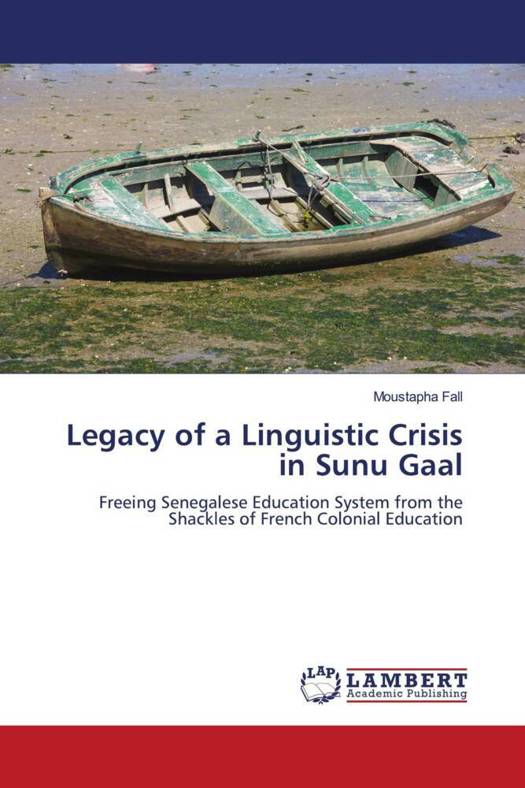
Door een staking bij bpost kan je online bestelling op dit moment iets langer onderweg zijn dan voorzien. Dringend iets nodig? Onze winkels ontvangen jou met open armen!
- Afhalen na 1 uur in een winkel met voorraad
- Gratis thuislevering in België vanaf € 30
- Ruim aanbod met 7 miljoen producten
Door een staking bij bpost kan je online bestelling op dit moment iets langer onderweg zijn dan voorzien. Dringend iets nodig? Onze winkels ontvangen jou met open armen!
- Afhalen na 1 uur in een winkel met voorraad
- Gratis thuislevering in België vanaf € 30
- Ruim aanbod met 7 miljoen producten
Zoeken
Legacy of a Linguistic Crisis in Sunu Gaal
Freeing Senegalese Education System from the Shackles of French Colonial Education
Moustapha Fall
Paperback | Engels
€ 70,95
+ 141 punten
Omschrijving
This book explores the different types of language education policies during French colonialism in Senegal in the early 19th century. Until recently, there was no current available research in Senegal that exhumes France's legacy of colonial language education policies and their lasting impacts on the current Senegalese education system. This book begins with a brief theoretical framework of Senegal's history and discusses the country's geography, economy, population and religious composition. It then analyzes France's overall educational plan for Africa and the early resistance this "plan of education" encountered in West Africa particularly in Senegal. It discusses the major language policies undertaken by presidents Leopold Sedar Senghor, Abdou Diouf and Abdoulaye Wade, and demonstrates how some of these leaders failed to achieve a complete linguistic decolonization in Senegal after independence. It lastly provides Senegal with a series of solutions on how to emerge from the legacy of this linguistic crisis to a complete linguistic decolonization.
Specificaties
Betrokkenen
- Auteur(s):
- Uitgeverij:
Inhoud
- Aantal bladzijden:
- 160
- Taal:
- Engels
Eigenschappen
- Productcode (EAN):
- 9783659507601
- Verschijningsdatum:
- 26/06/2014
- Uitvoering:
- Paperback
- Formaat:
- Trade paperback (VS)
- Afmetingen:
- 152 mm x 229 mm
- Gewicht:
- 244 g

Alleen bij Standaard Boekhandel
+ 141 punten op je klantenkaart van Standaard Boekhandel
Beoordelingen
We publiceren alleen reviews die voldoen aan de voorwaarden voor reviews. Bekijk onze voorwaarden voor reviews.











